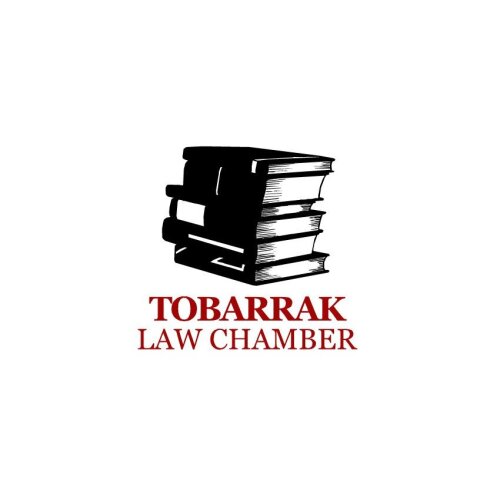What due diligence steps are essential when negotiating a cross-border merger with a Bangladeshi company?
Lawyer Answers

mohammad mehdi ghanbari
Hello
Navigating such a transaction requires careful attention to a number of critical areas. While this overview provides a general guide, a detailed consultation would be necessary to address the specifics of your deal.
Below are the essential due diligence steps and regulatory considerations you should be aware of.
Key Due Diligence Priorities
A thorough due diligence process is fundamental to identifying risks and making an informed decision. The investigation should be comprehensive, but you should prioritize the following areas:
Financial Due Diligence: This involves a detailed review of the target company's financial health. Key activities include scrutinizing financial records, verifying assets and liabilities, reviewing tax returns, and assessing the reliability of financial information. This process is crucial for accurate valuation and mitigating financial risks.
Legal and Corporate Due diligence: This is a critical step to identify potential liabilities and assess regulatory risks. You must review the target company's corporate documents, such as its certificate of incorporation, trade licenses, and other permits to ensure it is in good standing. It is also vital to check for any pending litigation, regulatory investigations, or arbitration proceedings.
Contracts Review: A meticulous review of all significant contracts is necessary. This includes customer and supplier agreements, joint ventures, and financing arrangements to understand the company's existing obligations. Pay close attention to any "change-of-control" clauses that could be triggered by the merger.
Intellectual Property (IP): An audit of the target’s IP assets, including patents, trademarks, and copyrights, is essential. This confirms ownership and identifies any potential infringement issues or liabilities.
Employment and Labor: Review all employment contracts, employee benefit plans, and collective bargaining agreements. This helps to understand labor-related liabilities and compliance with Bangladeshi employment laws.
Tax Compliance: It is important to assess the target company's tax history and ensure compliance with all national tax laws to avoid unforeseen liabilities. This is particularly complex in cross-border deals due to differing tax regulations.
Regulatory Approvals
Several regulatory bodies are involved in the M&A process in Bangladesh, and securing their approval is a critical step.
Registrar of Joint Stock Companies and Firms (RJSC): After a merger is approved by the court, the final order must be filed with the RJSC to legally formalize the consolidation. The RJSC handles the incorporation and registration of companies in Bangladesh.
Bangladesh Securities and Exchange Commission (BSEC): If either of the merging companies is a publicly listed entity in Bangladesh, you must obtain advance approval from the BSEC.
Bangladesh Competition Commission (BCC): Mergers that could lead to a significant market share and potentially create an unfair monopoly may be reviewed by the BCC.
Bangladesh Bank: As the central bank, its approval is necessary for cross-border transactions, especially concerning foreign exchange and the repatriation of funds for foreign sellers. All transactions must comply with the Foreign Exchange Regulations Act, 1947, and associated guidelines.
High Court Division: Mergers in Bangladesh require judicial approval. A petition must be filed with the High Court Division of the Supreme Court of Bangladesh, which will review the merger plan (Scheme of Amalgamation) before passing an order of approval.
Timeline and Common Pitfalls
The timeline for a cross-border merger can vary significantly based on the complexity of the deal, the size of the companies, and the efficiency of the regulatory approval process. The due diligence phase alone can take anywhere from several weeks to several months.
Common pitfalls that can cause delays include:
Inaccurate or unreliable financial information from the target company.
Unforeseen legal issues, such as pending lawsuits or regulatory non-compliance.
Delays in obtaining approvals from the various regulatory bodies.
Challenges related to differing legal systems, language barriers, and cultural nuances in a cross-border context.
Difficulties in post-merger integration, including combining operations, systems, and company cultures.
Given the complexities involved, engaging local legal and financial experts with experience in Bangladeshi M&A transactions is highly recommended to navigate these challenges effectively.
I hope this initial guidance is helpful. For a more detailed discussion tailored to your specific situation, I would be happy to offer a consultation via WhatsApp for a reasonable fee. Please feel free to get in touch to schedule a session.

Stellar Chambers
Hello. Essential List for Initial Due Diligence in a Cross-Border Acquisition of a Bangladeshi Compan:
1. Corporate Information
To review the corporate structure, governance, and historical resolutions, please provide:
- Memorandum and Articles of Association (or Constitution) of the Company.
- Schedule X and Form XII of the Company;
- Copies of all board and shareholders’ resolutions since incorporation.
- Copies of certificate(s) of incorporation;
- Details of all subsidiaries, affiliates, or associated entities, including ownership percentages.
- Information on brand names, trademarks, or trade names used by the Company.
2. Regulatory Compliance
To assess regulatory adherence, please provide:
- Copies of all licenses, permits, and approvals obtained from any governmental or regulatory authority since incorporation.
- Documentation evidencing compliance with applicable laws and regulations related to the Company’s business operations.
- Any correspondence, notices, or show-cause letters from regulators or governmental authorities.
3. Material Contracts
To review material commercial obligations, please provide:
- Copies of all contracts outside the ordinary course of business.
- Contracts related to mergers, acquisitions, transfer of assets, or corporate restructuring.
- Any agreements on which the Company is highly dependent, including supply, distribution, or strategic partnership agreements.
- Copies of any amendments, side letters, or ancillary agreements to the above contracts.
4. Employment
To review HR practices and employment compliance, please provide:
- Appointment letters,
- Standard forms of employment contracts (both local and foreign employees).
- Records of employee disputes, grievances, or claims, including claims of breach of benefits, underpayment, or unfair dismissal.
- HR policies, manuals, and related documentation (e.g., leave policies, disciplinary procedures).
- Immigration documentation for any foreign employees.
- Records evidencing compliance with labor laws, minimum wage regulations, and employee benefits obligations.
5. Assets
- List and description of all assets owned or occupied by the Company.
- Copies of all active lease or tenancy agreements concerning the Company.
- Certificates of fitness for occupation for real properties owned, rented, or occupied by the Company.
- Details and supporting documents for all material assets (other than real property) owned or used by the Company, including machinery, equipment, vehicles, or other significant assets.
6. Intellectual Property
- Copies of all registrations for trademarks, patents, copyrights, or other intellectual property rights held by the Company.
- Documentation verifying ownership and validity of such intellectual property rights.
- Details of any pending or threatened disputes relating to intellectual property rights.
The time frame will vary depending on the type of company. We can provide you with all the necessary legal requirements.

Stellar Chambers
Hi Thank you for your query.
Hello. Essential List for Initial Due Diligence in a Cross-Border Acquisition of a Bangladeshi Compan:
1. Corporate Information
To review the corporate structure, governance, and historical resolutions, please provide:
- Memorandum and Articles of Association (or Constitution) of the Company.
- Schedule X and Form XII of the Company;
- Copies of all board and shareholders’ resolutions since incorporation.
- Copies of certificate(s) of incorporation;
- Details of all subsidiaries, affiliates, or associated entities, including ownership percentages.
- Information on brand names, trademarks, or trade names used by the Company.
2. Regulatory Compliance
To assess regulatory adherence, please provide:
- Copies of all licenses, permits, and approvals obtained from any governmental or regulatory authority since incorporation.
- Documentation evidencing compliance with applicable laws and regulations related to the Company’s business operations.
- Any correspondence, notices, or show-cause letters from regulators or governmental authorities.
3. Material Contracts
To review material commercial obligations, please provide:
- Copies of all contracts outside the ordinary course of business.
- Contracts related to mergers, acquisitions, transfer of assets, or corporate restructuring.
- Any agreements on which the Company is highly dependent, including supply, distribution, or strategic partnership agreements.
- Copies of any amendments, side letters, or ancillary agreements to the above contracts.
4. Employment
To review HR practices and employment compliance, please provide:
- Appointment letters,
- Standard forms of employment contracts (both local and foreign employees).
- Records of employee disputes, grievances, or claims, including claims of breach of benefits, underpayment, or unfair dismissal.
- HR policies, manuals, and related documentation (e.g., leave policies, disciplinary procedures).
- Immigration documentation for any foreign employees.
- Records evidencing compliance with labor laws, minimum wage regulations, and employee benefits obligations.
5. Assets
- List and description of all assets owned or occupied by the Company.
- Copies of all active lease or tenancy agreements concerning the Company.
- Certificates of fitness for occupation for real properties owned, rented, or occupied by the Company.
- Details and supporting documents for all material assets (other than real property) owned or used by the Company, including machinery, equipment, vehicles, or other significant assets.
6. Intellectual Property
- Copies of all registrations for trademarks, patents, copyrights, or other intellectual property rights held by the Company.
- Documentation verifying ownership and validity of such intellectual property rights.
- Details of any pending or threatened disputes relating to intellectual property rights.
The time frame will vary depending on the type of company. We can provide you with all the necessary legal requirements.

Tobarrak Law Chamber
First, a corporate and legal structure review should be conducted to verify incorporation with the Registrar of Joint Stock Companies and Firms (RJSC), review constitutional documents, shareholding, and confirm there are no compliance defaults or pending litigation.
Second, financial and tax due diligence is crucial — this includes analysing audited financials, tax filings, and liabilities for the past several years to identify any undisclosed debts or irregularities.
Third, ensure regulatory and foreign investment compliance, as transactions involving non-resident investors must follow Bangladesh Bank’s foreign exchange and investment approval requirements. Additionally, review employment, contractual, and intellectual property matters to confirm there are no restrictive clauses, unresolved employee claims, or ownership disputes. Finally, assess reputation, environmental, and governance risks through site inspections, management interviews, and market reputation checks to uncover potential operational or ESG issues that could affect the merger.
Kind regards,
Tanzim Bin Tobarrak
Barrister-at-Law

Equity Law House
1. Priority Due Diligence Areas
Priority Due Diligence Areas
- Financials: Audit for Bad Loans (especially if the target is an NBFI/Bank) and verification of the Valuation Report by a certified Chartered Accountant, as required for Bangladesh Bank BB reporting.
- Contracts: Review Change of Control clauses and Section 27A Bank Companies Act compliance - meaning you often need prior written permission from the target's lenders/banks to transfer shares or change directors.
- Land & Assets: Critical: Verify the chain of title from CS to BS records. Ensure the land is Mutated in the company's name. Many mergers fail because the factory land is still in the name of a director or has unresolved litigation.
- Employment: Review compliance with the Labor Act 2006, specifically the Workers' Profit Participation Fund WPPF payments and gratuity/provident fund liabilities, which are common areas for hidden debt.
- Tax & IP: Verify Tax Clearance Certificates and ensure any trademarks or patents are registered with the DPDT (Department of Patents, Designs and Trademarks) specifically in Bangladesh.
2. Mandatory Regulatory Approvals
In Bangladesh, a merger (amalgamation) typically requires a High Court Order under Sections 228 and 229 of the Companies Act 1994, which makes it a lengthier process than a simple share purchase.
RJSC (Registrar of Joint Stock Companies): After the High Court sanctions the scheme, the certified court order must be filed with the RJSC to formally merge the entities and update the share register.
BSEC (Securities and Exchange Commission): If the target or acquirer is a listed company, you must follow the Substantial Acquisition of Shares and Takeovers Rules. This includes mandatory public disclosures and potentially an Open Offer.
Competition Commission (BCC): Under the Competition Act 2012, you must notify the BCC if the merger significantly affects market competition. They have the power to block deals that create monopolies in essential sectors (e.g., textiles, pharmaceuticals).
Bangladesh Bank (BB): Essential for cross-border deals to authorize the repatriation of sale proceeds and to vet the share valuation for compliance with foreign exchange guidelines.
3. Timeline and Common Pitfalls
Timeline: 6 to 12 Months
A court-sanctioned merger is rarely completed in under six months. The High Court process alone (hearings, notices to creditors/shareholders, and final sanction) usually takes 4-6 months.
Common Timing Pitfalls
- The Lender Consent Delay: Forgetting to get formal NOCs from every bank the target company has a loan with can halt the process at the last minute.
- Valuation Disputes: Bangladesh Bank is known to challenge over-valued acquisitions to prevent money laundering, requiring multiple rounds of audit justifications.
- Incomplete Land Records: Discovering Khatian discrepancies during the 11th hour is the #1 cause for deal collapses in industrial mergers.
- Creditor Objections: In the High Court phase, even a minor creditor can file an objection, forcing the parties into a settlement negotiation before the court will sign the decree.

Equity Law House
1. Priority Due Diligence Areas
- Financials: Audit for bad loans (especially if the target is an NBFI/Bank) and verification of the valuation report by a certified Chartered Accountant, as required for Bangladesh Bank reporting.
- Contracts: Review change of control clauses and Section 27A of the Bank Companies Act; you may need prior written permission from the target lenders/banks to transfer shares or change directors.
- Land and Assets: Verify the chain of title from CS to BS records. Ensure the land is Mutated in the company’s name. Many mergers fail because the factory land is still in the name of a director or has unresolved litigation.
- Employment: Review compliance with the Labor Act 2006, specifically the Workers' Profit Participation Fund (WPPF) payments and gratuity/provident fund liabilities, which are common areas for hidden debt.
- Tax and IP: Verify Tax Clearance Certificates and ensure any trademarks or patents are registered with the DPDT (Department of Patents, Designs and Trademarks) specifically in Bangladesh.
2. Mandatory Regulatory Approvals
- In Bangladesh, a merger (amalgamation) typically requires a High Court Order under Sections 228 and 229 of the Companies Act 1994, which makes it a lengthier process than a simple share purchase.
- RJSC (Registrar of Joint Stock Companies): After the High Court sanctions the scheme, the certified court order must be filed with the RJSC to formally merge the entities and update the share register.
- BSEC (Securities and Exchange Commission): If the target or acquirer is a listed company, you must follow the Substantial Acquisition of Shares and Takeovers Rules. This includes mandatory public disclosures and potentially an Open Offer.
- Competition Commission (BCC): Under the Competition Act 2012, you must notify the BCC if the merger significantly affects market competition. They have the power to block deals that create monopolies in essential sectors (e.g., textiles, pharmaceuticals).
- Bangladesh Bank (BB): Essential for cross-border deals to authorize the repatriation of sale proceeds and to vet the share valuation for compliance with foreign exchange guidelines.
3. Timeline and Common Pitfalls
- Timeline: 6 to 12 Months. A court-sanctioned merger is rarely completed in under six months. The High Court process alone (hearings, notices to creditors/shareholders, and final sanction) usually takes 4–6 months.
- Common Timing Pitfalls:
- The Lender Consent Delay: Forgetting to get formal NOCs from every bank the target company has a loan with can halt the process at the last minute.
- Valuation Disputes: Bangladesh Bank is known to challenge over-valued acquisitions to prevent money laundering, requiring multiple rounds of audit justifications.
- Incomplete Land Records: Discovering Khatian discrepancies during the 11th hour is the #1 cause for deal collapses in industrial mergers.
- Creditor Objections: In the High Court phase, even a minor creditor can file an objection, forcing the parties into a settlement negotiation before the court will sign the decree.
Free • Anonymous • Expert Lawyers
Need Personal Legal Help?
Connect with experienced lawyers in your area for personalized advice on your specific situation.
No obligation to hire. 100% free service.
Related Legal Experts
Get personalized help from lawyers specializing in this area

All lawyers are verified, licensed professionals with proven track records


